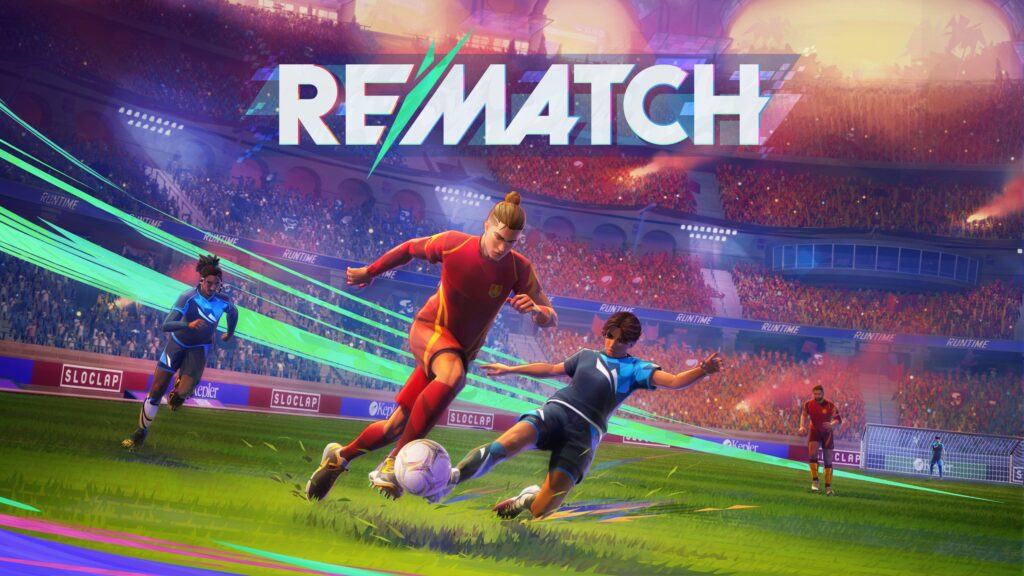
Rematch, the latest offering from developer Sloclap, renowned for the hit game Sifu, is making waves in the gaming community with its unique take on multiplayer soccer. Released on June 19, 2025, this game has been humorously likened to “Rocket League with people instead of cars.” While the description might sound whimsical, the game delivers a profound and intricate multiplayer experience that has captivated sports enthusiasts and gamers alike.
For someone who enjoys watching sports but has never been drawn to traditional sports simulations like Madden or MLB The Show, Rematch offers a refreshing blend of arcade-style fun with deep simulation mechanics. This innovative approach could potentially transform the landscape of sports gaming, extending its influence to other sports genres in the future.
Rematch Blends Simulation and Arcade Sports
What sets Rematch apart is its ability to merge the fast-paced excitement of arcade games with the strategic depth typical of simulations. Players have a variety of tools at their disposal, including the ability to pass, shoot, tackle, and juke opponents. The control mechanics are where the game truly shines, offering players the ability to direct their shots and passes with precision, adding layers of complexity and skill to the gameplay.
Unlike traditional soccer games where players switch between characters, Rematch allows each player to control a single character, enhancing the sense of teamwork and strategy. This feature not only makes the game more challenging but also more rewarding as players must work together to succeed.
Applying the Formula to Other Sports
The success of Rematch has sparked discussions about applying its formula to other sports. Fast-paced sports like hockey and basketball seem like natural fits for this model, given their continuous action and team dynamics. An arcade version of these sports, focusing on skillful shooting and teamwork, could revolutionize how they are played in the digital realm.
However, translating this model to sports like baseball and football poses challenges due to their inherent downtime and individual player roles. While the idea of each player taking their own at-bats in baseball is intriguing, it presents logistical challenges that may be difficult to overcome. Despite these hurdles, the potential for innovation in sports gaming remains vast.
Meaningful Multiplayer Experiences
Rematch resonates with players who thrive on teamwork and collaboration. Unlike traditional sports simulations where players control entire teams, Rematch emphasizes individual roles within a team, fostering a sense of camaraderie and shared goals. This approach mirrors the dynamics of real-life sports, where teamwork is paramount.
For many gamers, the appeal lies in the feeling of being part of a team, a sentiment echoed by fans of games like Overwatch and Marvel Rivals. Rematch taps into this desire, offering 3v3, 4v4, and 5v5 matchups where each player is integral to the team’s success.
Challenges and Opportunities
Despite its innovative design, Rematch is not without its challenges. The game’s complexity and steep learning curve may deter some players. Mastering the intricate controls and strategies requires dedication and practice, which can be daunting for newcomers.
Rematch has already reached one million players, demonstrating a strong initial reception despite its difficulty.
However, the game’s early success suggests that players are willing to invest the time and effort required to master its mechanics. This dedication mirrors the commitment seen in other challenging genres, such as fighting games and MOBAs, where players thrive on the satisfaction of honing their skills.
The Future of Sports Gaming
Rematch’s success could pave the way for a new era in sports gaming, where the focus shifts from traditional simulations to more dynamic and engaging multiplayer experiences. If developers can harness this model and apply it to other sports, the impact on the gaming industry could be significant.
The game’s ability to attract a large player base despite its complexity highlights a growing appetite for innovative and challenging gaming experiences. As Rematch continues to evolve and inspire, it may well influence the development of future sports games, encouraging a shift towards more immersive and team-oriented gameplay.
As the gaming community eagerly anticipates the next steps, Rematch stands as a testament to the potential for innovation in the sports gaming genre, offering a glimpse into a future where multiplayer experiences are as thrilling and rewarding as the sports they emulate.







